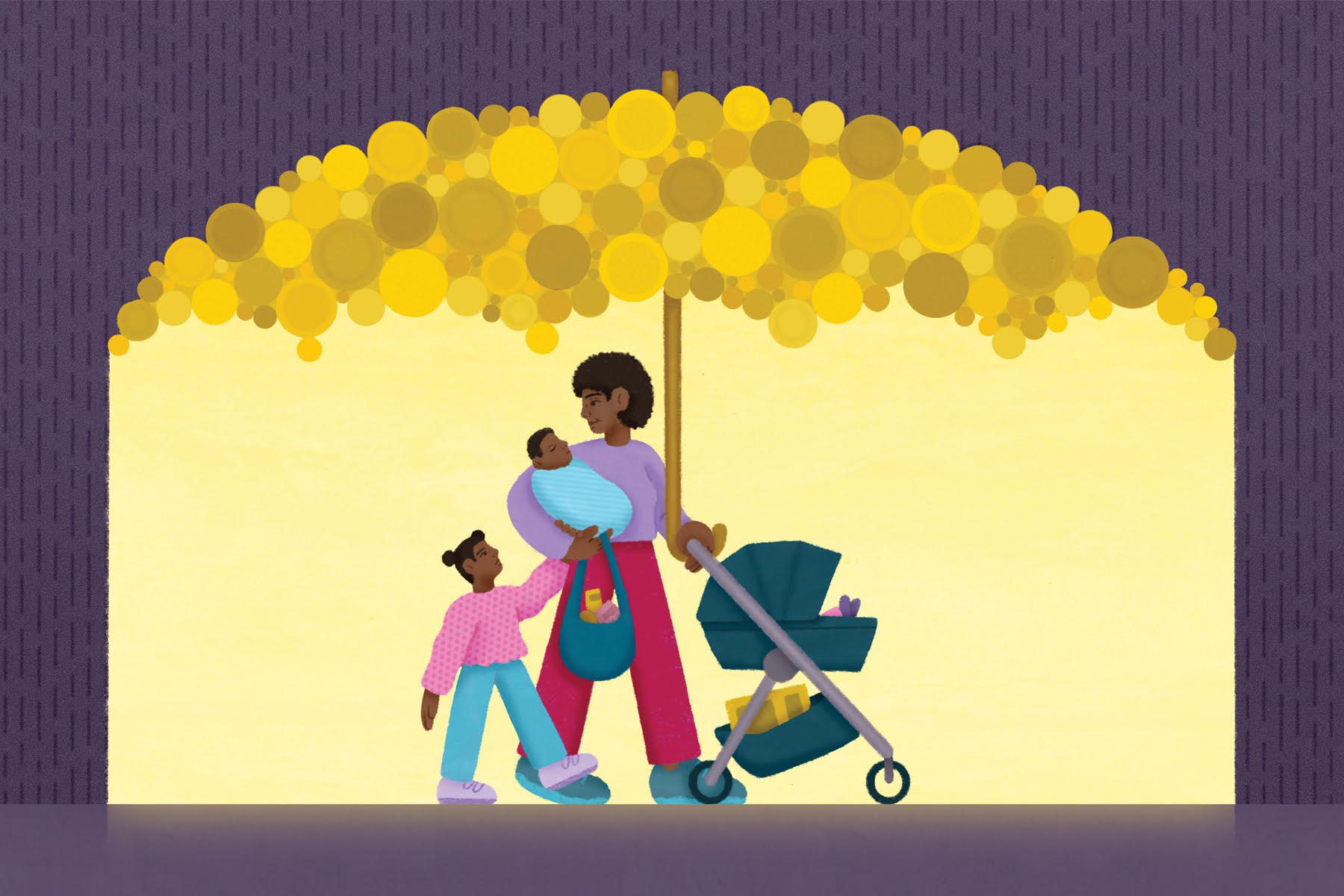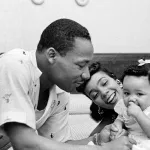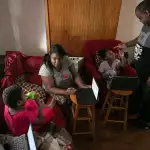The Magnolia Mother’s Trust is now the longest-running guaranteed income program in the United States. But the program, which gives Black mothers in Jackson, Mississippi, $1,000 a month for one year, no strings attached, was never meant to last forever.
“I don’t think that’s the systems change we need,” said Aisha Nyandoro, CEO of Springboard Opportunities, which runs Magnolia Mother’s Trust and provides programs and services to families that live in federally subsidized affordable housing.
Instead, the goal of the trust is to model what could be, in a more just and fair society.
“We want to change how our society talks about Black women and poverty — that it’s not a personal failing. That there are systemic barriers that allow Black women to be the most vulnerable financially, even though they are the most highly invested in the labor market,” Nyandoro said.
Magnolia Mother’s Trust has been in operation since 2018. The organization recently wrapped up the third cohort of 100 Black mothers who received monthly payments. The fourth cohort has been selected by lottery, and participants received their first payment in May of this year.
According to the organization’s report on the third cohort, 82 percent of the women who participated felt more hopeful about their children’s futures; 79 percent felt more hopeful about their own futures; and 76.2 percent reported that with money from the Magnolia Mother’s Trust, they were able to take their children on trips, pay for extracurricular activities and afford school supplies.
Most people have heard of universal basic income — Andrew Yang made it a cornerstone of his 2020 presidential campaign. Guaranteed minimum income is similar but has some key differences, according to Amy Castro, a professor at University of Pennsylvania and one of the lead researchers behind the Stockton Economic Empowerment Demonstration, which gave randomly selected low-income residents of Stockton, California, $500 per month for two years, no strings attached.
“Universal basic income is exactly what it sounds like: It’s universal, That means it would go to every single citizen or resident in a particular city, county, state, country — you know, choose your geographic area,” Castro said. In contrast, guaranteed income is more targeted, designed to reach out to disenfranchised communities in particular.
“I think [Magnolia Mother’s Trust] is one of the most important experiments with unconditional cash happening right now in the United States,” Castro said. “It’s not the largest. But that’s not the point.” Instead, the program’s biggest strengths are its location and population served — Black mothers in the South.
“We have a lot of momentum in the Northeast and the West Coast, particularly California. And what that momentum leaves out are the voices of people who have been the most marginalized,” Castro said. Mississippi has the highest poverty rate in the country, and other Southern states rank in the top 10, according to the most recent Census Bureau data.
The third cohort of the trust, which has spanned the economic fallout of the COVID-19 pandemic and an unprecedented period of high inflation, has had particularly interesting implications for the future of basic income programs. Over 51 percent of cohort members lost their jobs during the course of the program, due to the pandemic. However, by the end of the program, the employment rate was unchanged, meaning most of the women who kept their jobs continued to work and most of the women who lost their jobs found new work while receiving the payments.
According to Nyandoro, this challenges the belief that benefits like the child tax credit might cause a drop in workforce participation. Instead, the primary challenges to employment for program participants centered on child care and safety concerns.
This was the case for fund recipient Jasmine Johnson. Before the pandemic, Johnson worked as a home health aide for older adults. When her father died from COVID, she knew she couldn’t go back.
“I didn’t want to go to people’s houses and never know if they have COVID. I didn’t want my daughter to get COVID. It scared me,” Johnson told The 19th.
Between schools closing and the death of her father, Johnson also lost access to child care for her daughter. The Magnolia Mother’s Trust helped her weather the financial storm and provide the care and attention her daughter needed to keep up with her studies.
“I was able to buy her a laptop. I was able to pay for my Wi-Fi, to keep the internet up,” she said. This was important for remote schooling. But beyond that, Johnson valued the time she was able to spend with her daughter as she struggled with the fallout of her father’s death.
“We danced. We did a lot of cooking, baking cookies, stuff like that. And I was still able to go over her schoolwork. I was able to buy her small stuff that made her happy,” Johnson said.
While school has reopened, Jackson has not been able to return to work. “I don’t have a babysitter. I don’t have my dad. It’s just me right now,” she said. She hopes to go back soon, though.
“Hopefully, something’s going to come up,” Johnson said.







